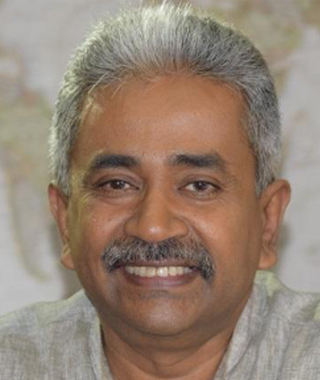 Despite being a lower middle-income country, Sri Lanka, in the recent past had set benchmarks in the region for its impressive gains on health and social indices. However, due to many contributing factors such as poor governance, as well as fiscal and economic failures, the people of Sri Lanka experienced a downward spiral affecting multiple dimensions of social protection and welfare. The pandemic had already highlighted gaps in the current Social Protection and Welfare systems.
Despite being a lower middle-income country, Sri Lanka, in the recent past had set benchmarks in the region for its impressive gains on health and social indices. However, due to many contributing factors such as poor governance, as well as fiscal and economic failures, the people of Sri Lanka experienced a downward spiral affecting multiple dimensions of social protection and welfare. The pandemic had already highlighted gaps in the current Social Protection and Welfare systems.
Given the aftereffects of the meltdown of the national economy and pressure from the International Monetary Fund, as well as the World Bank, and other international agencies, the country has an opportunity to rethink its social protection policies. The prices of food, medication and other basic requirements still create severe challenges at both micro and macro-economic spheres trickling down to the socio-economic and political life of the population. The effects are heavily felt by the most marginalised and disadvantages, non-affluent populations.
In this backdrop, Civil Society and Humanitarian Actors are currently bracing and strategizing diverse initiatives as non-affluent, marginalised, and vulnerable groups are already taking a devastating toll. A recently conducted UNICEF survey (2021) notes that ‘Loss of income or lowering of income is compensated by reducing food intake at household level’ and this has a direct impact especially on the country’s population of children particularly from marginalised populations. A 2020 report of the Ministry of Finance indicates that 500,000 people were pushed into poverty in 2020. Like in most places globally Sri Lanka is equally experiencing an emergence of the ‘new poor’. Lack of social protection/ welfare coverage when they lost their jobs or sources of income especially due to the negative effects of the pandemic is making things difficult for this category.
Policy Area to Affect Practical Solutions
In this backdrop, Government institutions (related to welfare) are crafting a
strategic frameworks to build a new National Social Protection System (NSPS).
GDS Senior Research Fellow (non-resident) Vinya Ariyaratne, MD, MPH, has been involved extensively through his leadership of the Sarvodaya Shramadana Movement, Sri Lanka’s largest development and humanitarian organization, in both policy level interactions as well as ground level actions towards addressing issues related to social protection in the country amidst the economic downfall affecting an estimated vulnerable population of 6.2 million persons. It is now evident that the current social protection systems in the country needs to be significantly restructured.
Meanwhile Sarvodaya along with other Civil Society actors are planning to address some of these challenges in the future. The draft NSPS is a commendable effort, however there is much to improve in terms of content, taking different socio-economic nuances into consideration, as well as it lacks consultation with diverse Civil Society actors already operating at grassroots and national levels. To approach this, a larger research framework/policy initiative that feeds into the policy apparatus is required.
GDS is assisting this effort, as a global resource partner, to implement a study to identify how Social Protection System/s in Sri Lanka can be improved and make policy recommendations. Work is proceeding toward these objectives:
- To review the present social protection mechanisms in Sri Lanka in the context of the current socio-economic crisis.
- To gather community views on the existing social protection mechanisms in Sri Lanka.
- To assess the role and impact of Civil Society Organizations in complementing the existing social protection mechanisms in the current social-economic and humanitarian crisis.
- To identify mechanism of longer-term engagement of Civil Society Actors, including possible local and international partnerships on research, policy action and humanitarian action fronts on Social Protection and to bring about effective change also enhancing Government and Civil Society partnership to deliver a successful Social Protection and Welfare Program for the marginalized, vulnerable, and affected communities in the island, ‘leaving no one behind’.
- To make policy recommendations on possible reforms to Social Protection in Sri Lanka.
